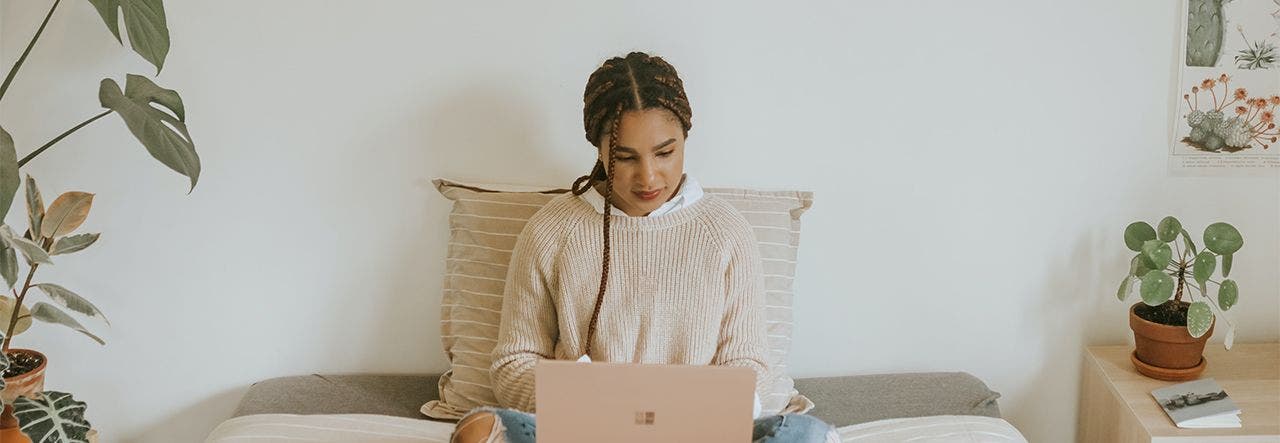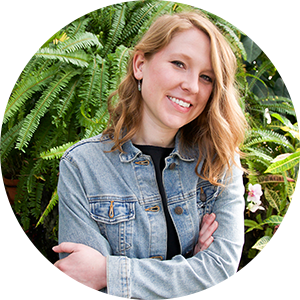We’re so excited to welcome Abbie Davidson, Editor of The Filtery, to our blog this month! The Filtery is a website that provides curious citizens with well-researched and practical solutions for reducing toxins in their homes and bodies.
Your bedroom is supposed to be a sanctuary—a place where you can rejuvenate, rest, and restore your body and mind with healthy sleep after the stress that each day brings.
It’s also where you spend a significant portion of your life, with the average person sleeping for about a third of their lifetime.
However, the very space meant for relaxation and recovery can harbor a variety of environmental toxins that could negatively impact your health, especially when you’re exposed over long periods of time. From the dust that accumulates on your nightstand to certain chemicals lurking in mattresses and paints, your sleeping environment might not be as safe and sound as you’d like.
This article aims to shed light on the environmental stressors and toxins that might be present in your bedroom and provide actionable tips on how to reduce them. Whether you're someone who's just starting to delve into the world of chemically safer living or a seasoned environmental champion, I hope these insights will help guide you towards healthy sleep and relaxation.
Let’s get to it.
1. Clean Regularly
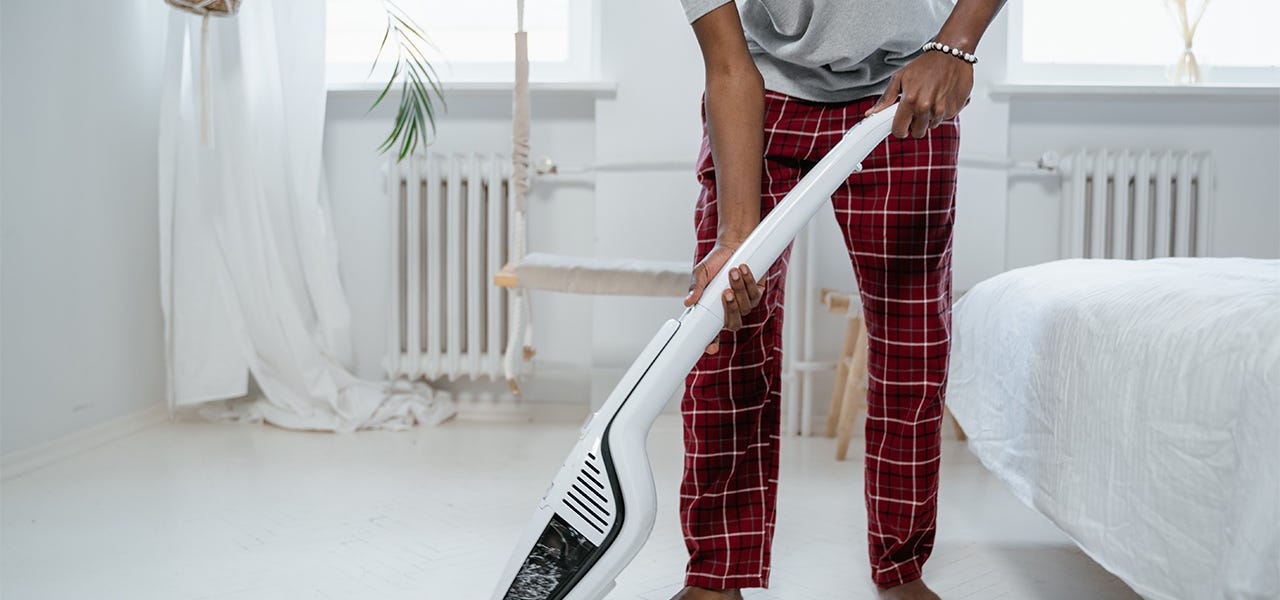

Studies have shown that household dust can be a major source of exposure to certain environmental chemicals, including phthalates, PFAS, and flame retardants.
This is because as these chemicals “shed” from household products (like furniture, plastics, scented sprays, etc.), they land in dust and stick to it. That dust is then ingested by those who live there, primarily through breathing in the dust or through touching dusty surfaces and then touching your face.
Therefore, one of the easiest and most cost-effective things you can do to decrease your exposure to toxicants in the bedroom is to have a regular cleaning routine!
Tips for Effective, Less Toxic Cleaning
Of course, cleaning only helps reduce exposure if you’re mindful of how what you’re cleaning. Here are some suggestions:
- Open the windows. According to the EPA, indoor air can actually be worse than outdoor air. So, opening your windows and getting some circulation in your home is a simple thing you can do to improve indoor air quality. (The exception to this is if your area is currently under an air quality advisory due to wildfire smoke, chemical disaster or similar issue. Purple Air is a helpful resource that can help you find real-time air quality data for your zip code.)
- Wet dust instead of using a dry cloth or feather duster. By wet dusting, you actually trap dust particles onto a rag (where you can then wash them down the drain) instead of just stirring them up into the air.
- Ideally, use a vacuum cleaner with a HEPA filter, which can adequately filter small particles such as mold spores.
- Use a safer all-purpose cleaner. You probably don’t need a bunch of different cleaning products (it just means more ingredients to worry about, anyway!). Using an all-purpose cleaner such as Branch Basics can help you keep all of your household surfaces clean with very minimal ingredients.
- If your bedroom is carpeted, skip the Scotchgard and similar products. These types of carpet treatments and cleaners often contain toxic PFAS.
- Wash your bedding regularly using a laundry detergent that has been vetted for harmful chemicals.
- If needed, use an organic waterproof mattress protector in order to prevent mold growth on your mattress.
2. Choose Safer Furnishings and Interiors
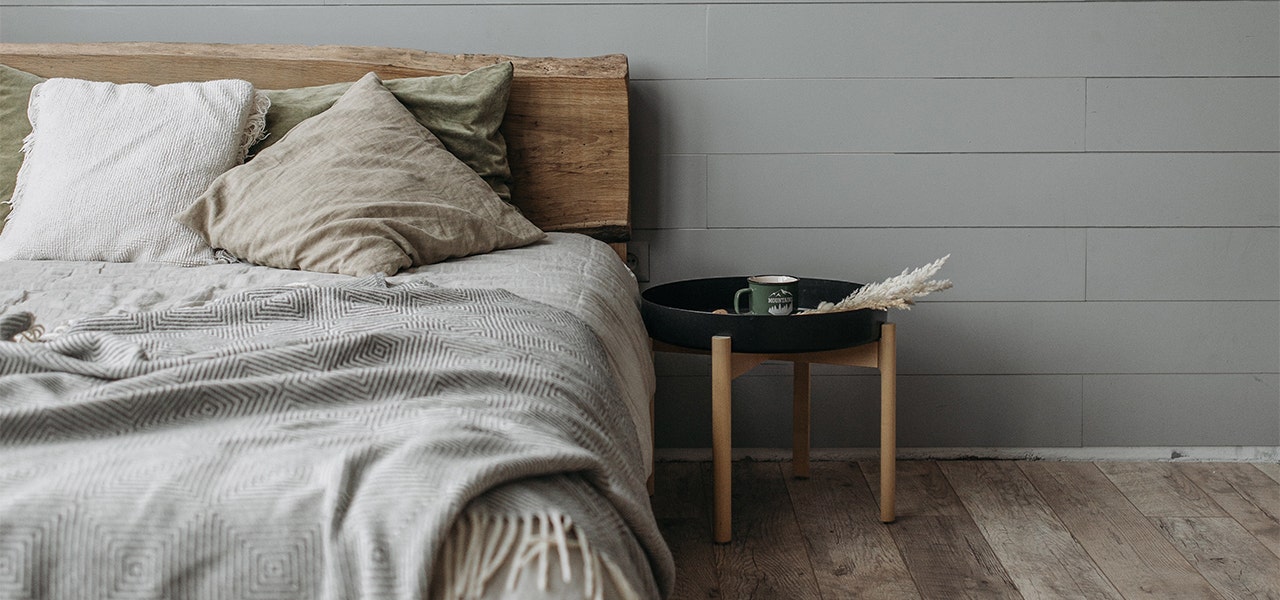

The next time you’re in the mood to do some bedroom renovations, choose your interiors carefully, as furniture and construction materials can be a significant source of environmental toxicants.
Beds and Mattresses
When choosing bedroom furniture such as bed frames, dressers, and nightstands, you’ll want to look for brands that use solid wood, and minimal amounts of glues and synthetic finishes (as these materials tend to have high amounts of formaldehyde and other VOCs).
Choosing an organic mattress is one of the best decisions you can make when decreasing environmental toxins in the bedroom. Conventional mattresses are usually made with a variety of petroleum-based materials, which can off-gas into your bedroom (especially as your body heat warms the mattress) at unacceptable levels. So, if you’re in the market for a new mattress, opt for natural and organic materials such as organic cotton, wool and latex. Even better if third-party certifications are involved, like EWG VERIFIED®, MADE SAFE® and GOTS. (Naturepedic’s mattresses have all of these labels and more – see their full list of certifications.)
Flooring and Paint
For rugs and carpets, look for natural materials such as wool that are not intentionally treated with PFAS finishes. (Keep in mind that you may have to reach out to the carpet manufacturer to ask if there are any PFAS on their products. As of this writing, no laws require that products with PFAS be labeled as such.)
Replacing your flooring with safer options can take some research, as there are pros and cons to the different types of materials available. Corinne from My Chemical-Free House has a thorough guide to choosing less toxic flooring, which you might find helpful.
If you’re re-painting your walls, look for brands that offer "zero-VOC" options, such as AFM.
3. Go for Organic Textiles
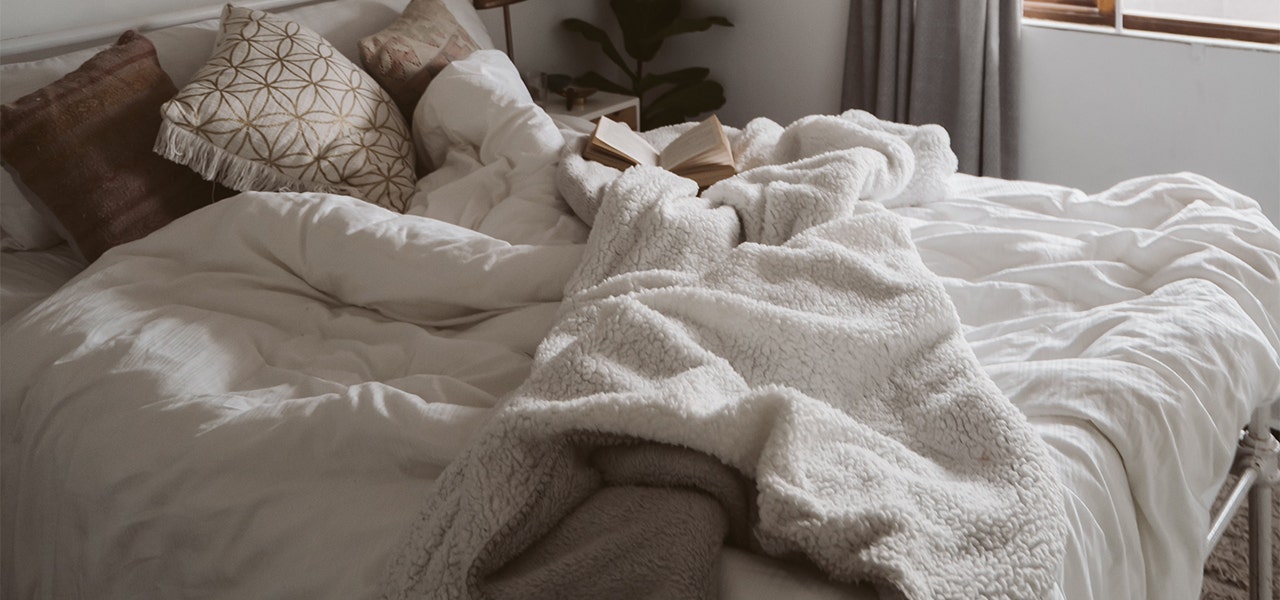

Unfortunately, the textile industry is highly unregulated. Sure, the tag on your new bed sheets or PJs might tell you what fabric is used, but that’s where the transparency ends. In fact, there are hundreds of different chemicals used throughout the textile manufacturing process, and companies do not have to tell you what is or isn’t used to produce or finish the products you buy. While many of those chemicals may be perfectly safe, others come with potential dangers.
Since your pajamas and bedding (including sheets, blankets/comforters, and pillows) are usually right against your skin, choosing healthier textiles can be especially important for those with sensitive skin and allergies.
So, when possible, choose natural and organic fabrics such as cotton, hemp, and linen for your bedding and sleepwear. Avoid “performance” labels such as “iron-free” or “water-resistant,” as these claims can indicate that the fabric has been treated with potentially harmful chemicals such as formaldehyde or PFAS. Look for third-party labels such as GOTS and OEKO-TEX, which indicate that the material and/or finished product has met a certain set of standards when it comes to safety.
4. Use a High-Quality Air Purifier
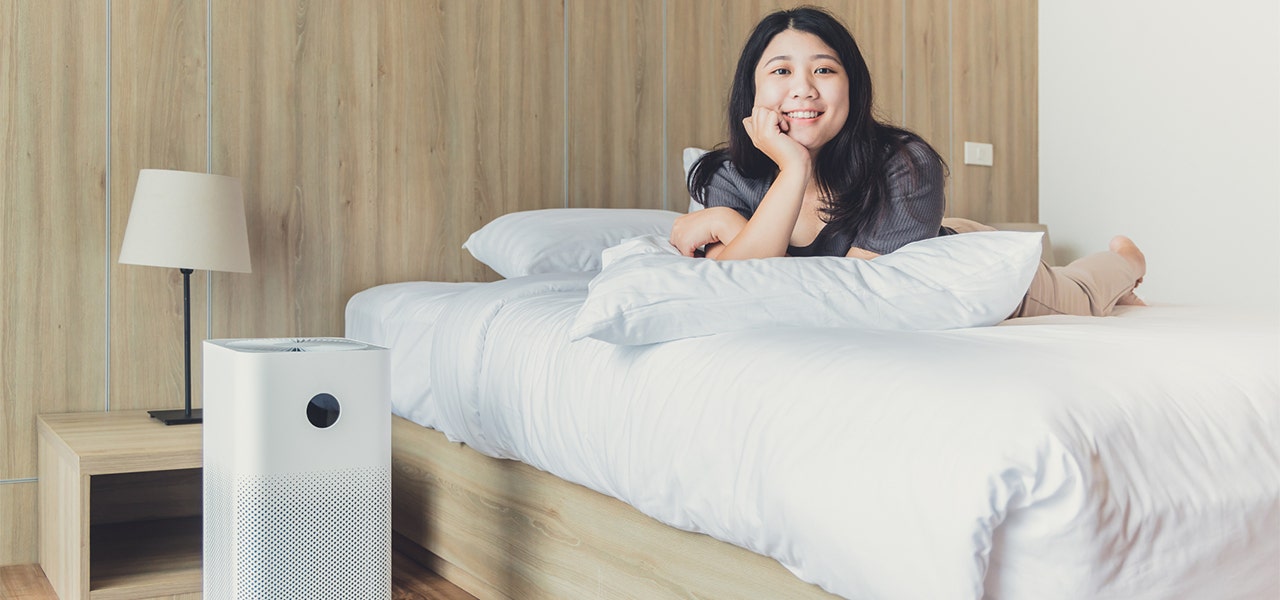

Of course, you probably can’t get rid of all toxicants that may show up in your bedroom. So using an air filter can help eliminate those chemicals you don’t have control over and keep your air clean as you sleep.
When shopping for an adequate air filter, you’ll want to look for one with both a HEPA (or UltraHEPA) filter and a sufficient amount of activated carbon. Utilizing both types of filtration media ensures that different types and sizes of toxicants are removed from your air. A few high-quality brands to check out are AirDoctor, IQAir, Austin Air, and AirPura.
You’ll also want to ensure you swap out your filters regularly, according to the manufacturer’s instructions. These days, most air filters have some sort of indicator light that will tell you when it’s time to put a new filter in, but you may also want to put a reminder on your calendar (or use whatever reminder system works for you!).
5. Consider Other Environmental Stressors


The above suggestions can make a significant impact on reducing toxicants in your bedroom, but here are even more environmental stressors you may want to consider:
Blue Light
Sleep is incredibly important for overall health. Poor sleep is linked to all-cause mortality, and it can also hinder your body’s natural detoxification capabilities.
ut you’ve probably heard about the potential negative impact that blue light exposure can have on your sleep quality, especially when abosorbed during the evening hours.
Therefore, you may want to consider putting some boundaries around your evening screen time and reducinge your exposure to blue light before bed. Here are a few pointers for doing so:
- Read a book instead of watching TV. You could read a traditional paper book, listen to an audiobook, or use an e-reader that’s not backlit.
- Give your phone a “bedtime.” Or at least turn it red in the evenings.
- Wear blue-light-blocking glasses.
- Use red light bulbs around your home.
Other Light
When it’s time to go to sleep, it’s not just blue light you may want to consider eliminating, but all light. Some research suggests that even a little bit of light in your bedroom can have negative effects on your health.
So, in addition to reducing blue light exposure, here are a few more tips to create a darker bedroom:
- Wear an organic sleep mask over your eyes
- Install blackout curtains made out of natural/organic materials
- Turn off all the lights in your house, including nightlights (unless they’re actually needed for another important reason).
- Turn off electronics and/or cover LEDs that may be emitting light.
- Strategically position your bed so that it’s not facing any unwanted source of light.
- Consider the placement of reflective surfaces such as mirrors, which can reflect light.
Stress
Although chronic stress may not be what first comes to mind when we think of “environmental toxins,” stress can most certainly be toxic to your health.
Having your phone on your nightstand at night may cause stress without your awareness, as your mind subconsciously wanders to it, wondering about unread emails or other notifications.
Of course, there are countless other stress-reducing practices you can introduce to your nightly routine as well, including breathing practices, warm baths, journaling, or anything else that helps you wind down! Even keeping your bedroom clean, organized, and temperature-controlled can help reduce the overall stress levels in your sleep sanctuary.
I hope this article has helped you identify potential toxicants in your bedroom and then take a few steps to minimize them.
 BABY
BABY  KIDS
KIDS  ADULT
ADULT  LEARN
LEARN  STORES
STORES 